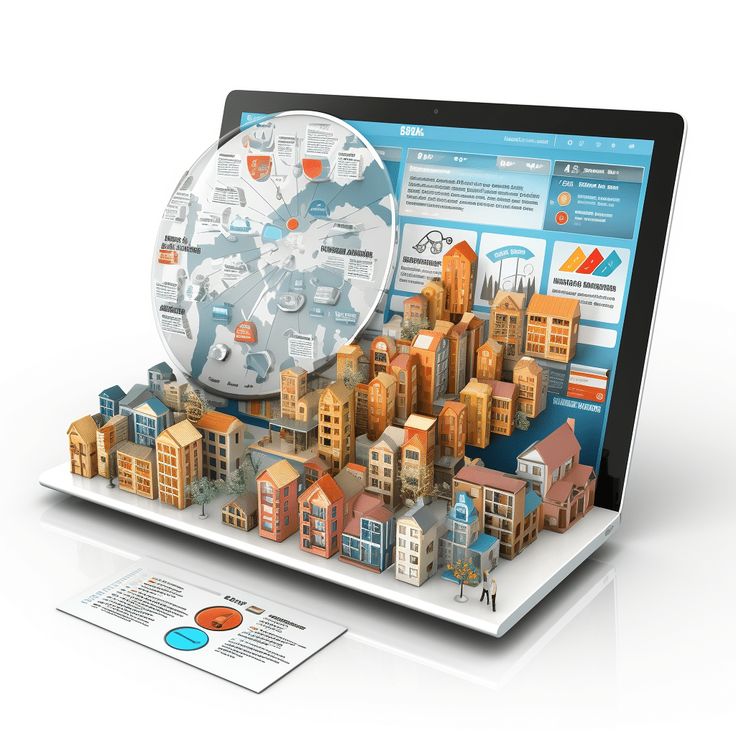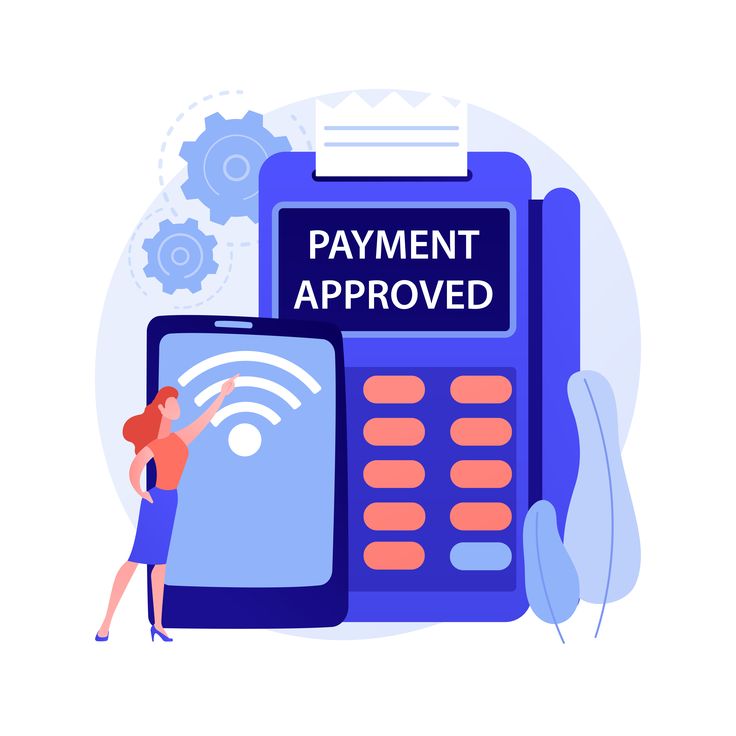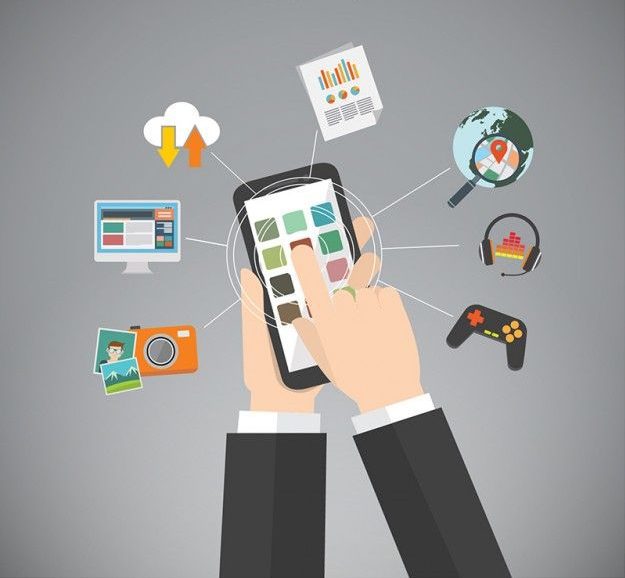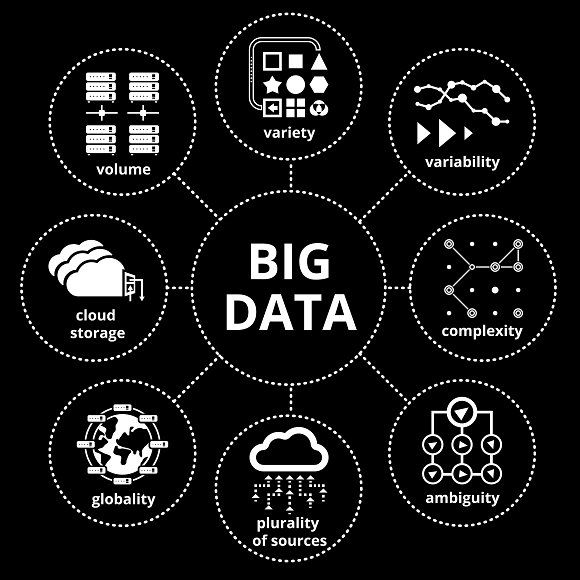
Whether you’re a seasoned investor or a first-time homebuyer, staying abreast of these technology trends in real-estate is crucial for navigating the modern landscape of property transactions and management. In today’s rapidly evolving world, technology is changing every aspect of our lives, and the real estate industry is no exception. From travelers making reservations online to property owners making listing of their property on property platforms, innovative technologies are revolutionizing how we buy, sell, and manage properties. This has generated a term called proptech which is the combination of the words property and technology. In this write up, we discuss some exciting advancements driving change in the real estate industry.
3D Virtual House and Apartment Tours
Closely associated with search applications are solutions that enable prospective buyers to take a virtual tour of properties while selecting. With this, prospective buyers need not worry about travelling to the site where the property is located but they can use software like EyeSpy360 to have a full view of the property.
Today, VR technologies allow having almost realistic virtual tours of houses where you can easily examine the property state, interior details, and furniture.
Chat Bots

Real estate software customers expect the best service and experience from using the technologies. Customer service must be available 24/7, the response time must be as fast as possible, and the error rate should be close to zero. This way, customers spend more time on the website.
Aside their traditional role, these chatbots engage in meaningful conversations with potential clients, adeptly handling inquiries from potential buyers or sellers. They are skilled in collating critical information to qualify leads, answering common questions, and providing unwavering, real-time support and management of property.
Internet of Things (IoT)

According to Imaginovation Insider, “IoT is a network of smart devices that can communicate with each other by sending and receiving data, thanks to their ability to connect with the Internet”. The days of real estate companies confining themselves to just building brick-and-mortar structures for customers are long gone.
In their place are a new breed of real estate companies that use technologies to create a connected world, offering a safe and healthy environment for people to live and work. Imaginovation Insider states that “By the end of 2024, consumers’ spending on IoT-based smart home systems will reach 157 billion USD. The increased efficiency, cost reduction, and lack of human error will likely make this number grow.”
Property Management Software(PMS).

Real estate is a popular industry to invest in. However, one can only expect to gain money from tenants if their buildings are presented and managed well. So, you need Property Management Systems from a professional Software Developer for your real estate business.
You can build an application that will analyze a huge amount of data to provide valuable information necessary for decision-making by real estate market participants. Buildium is a perfect example of a PMS.
Digital Transaction Management.

Real estate transactions can be complex and time-consuming, with numerous parties involved and a multitude of tasks to manage. Real estate transaction management software, also known as transaction coordinator software or real estate transaction management system, can help real estate professionals streamline and organize their work, allowing them to focus on providing exceptional service to their clients.
Mobile Applications Usage

From online shopping to paying bills, individuals can do everything with a single tap on their mobile phones. So, in the real estate world, using various mobile apps for browsing, buying, selling properties, or finding an agent is one of the best proptech trends. With the help of these apps, buyers can digitally meet sellers or look for specific properties. It helps save time, effort, and transportation costs and eventually helps in making all the processes transparent.
Digital Twins

In real estate, digital twins refer to virtual replicas of physical buildings or properties. These digital representations are created using advanced technologies such as 3D modeling, sensors, and data analytics. Digital twins allow real estate professionals to visualize and analyze various aspects of a property in real-time, including its structure, systems, and performance.
Digital twins can also be effective during house construction, which eventually helps the developers understand how safe and secure their project will be. These apps also help avoid property collapse and utilize developers’ resources logically.
Advertising automation

Ad campaigns for new listings can be generated by software systems. They can also display ads to the appropriate audiences and include real-time statistics such as views, clicks, and demographics. Real estate agents can understand which housing is best for sale or rent. And accordingly, they concentrate on the objects that bring them the most profit.
Big Data

With Big Data analysis, businesses enjoy streamlined resources management, increased operational efficiencies, growth opportunities, expedited and smart decision-making, and optimized product development among other benefits.
It is no different in the real estate sector, the transformation is clear. Companies, investors, sellers, and buyers are embracing Big Data using this type of data to build algorithm models and predictive analyses to remove the guesswork. As a result, they are reaching predictions that are more accurate.
Data Security
From personal data about residents collected using smart devices to sensitive property documentation and transactional data, all need protection. Government regulations on data collection and use are one way of addressing these challenges but they are not enough.
Data security is a relatively new challenge within real estate and is a trend that is expected to gain a lot more prominence in the coming years.
What is the newest technology in real estate?
Some of the best commercial technology trends in real estate in 2024 include Virtual and Augmented Reality, AI, ML, Smart Homes, Blockchain technology, Big Data Analytics, 3D printing, Drones, Predictive Analytics, energy efficiency, smart city integration, IoT, Digital twins, and many more.
What is the term for real estate technology.
Proptech is short for “property technology”and is essentially the complete landscape of established and emerging digital tools used by real estate professionals to complete all aspects of the property transaction cycle—from researching to listing to buying and selling.
How is AI used in real estate?
One of the key applications is predictive analytics, which leverages historical data and algorithms to forecast trends and make accurate predictions. Real estate professionals can use AI-powered tools to analyze market conditions, evaluate property values, and identify investment opportunities with greater precision.
Conclusion
From the seamless integration of virtual reality in property tours to the transformative potential of data security in transactions, these advancements promise to make buying, selling, and managing real estate more accessible and efficient for everyone involved. As we embrace these innovations, it’s clear that the future of real estate companies will be shaped by the ongoing evolution of technology. Embracing these trends will not only streamline processes but also enhance the overall experience for buyers, sellers, and industry professionals alike, marking a significant step forward in the modernization of the real estate sector.
Click HERE to see the best off plan projects in Ghana


